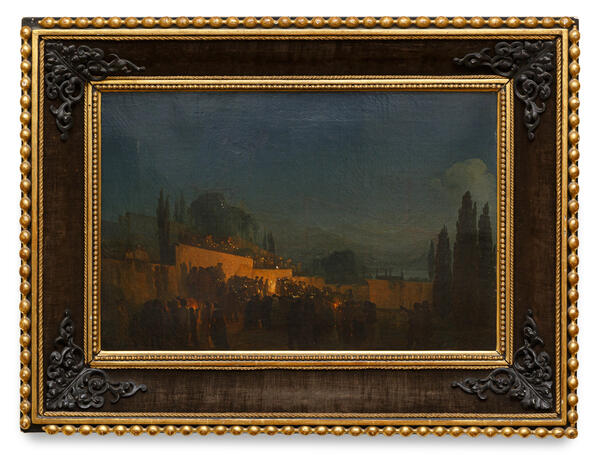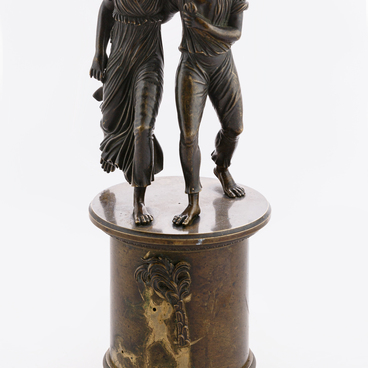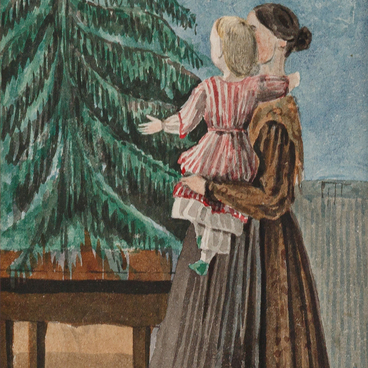Natalya
Alexandrovna Herzen spent the last years of her life in Nice. During that
period, she and her husband were facing marriage problems. She was torn between
her husband, Alexander Herzen, and her lover, the German poet Georg Herwegh.
Natalya Herzen wrote to her husband, explaining her feelings for the poet,
Funeral of Natalya Herzen in Nice on May 2, 1852
He is a big child, while you are a grown-up man… A chilling word is almost death to him, he must be spared.
Herzen and Herweg exchanged insulting letters and were on the brink of a duel. However, after the writer’s son died tragically in a shipwreck, the marital problems faded into the background.
Natalya Herzen never recovered after this tragedy. Her health began to deteriorate quickly. On April 30, she gave birth prematurely to another son, Vladimir. Both the newborn and his mother died several days later, on May 2.
Now I am in my fifties, yet, whether you believe it or not, I have never met a woman like her. Her heart and mind, her elegant grace and spiritual nobility were inseparable. And that boundless love she had for you all… Yes, it was the highest ideal of a woman.
In the displayed painting, the artist Ippolito Caffi depicted the nighttime funeral of Natalya Herzen. She and her newborn child were buried in the same casket at the Mount Château cemetery. The funeral procession walked up the mountain with torches. Alexander Herzen wrote,
Why must the thought of that day and of all the bright days of my past bring back so much that is frightening? … The grave, the wreath of dark-red roses, two children holding my hand — torches, the crowd of exiles, the moon, the warm sea under the mountainside, the words that I did not understand and that wrung my heart…
It was no coincidence that Alexander Herzen turned to Ippolito Caffi. The artist was a follower of the revolutionary leader Giuseppe Garibaldi. Eventually, he even died on board Garibaldi’s ship. Almost two decades later, Alexander Herzen was reburied here, on Mount Château, and a full-length monument of the writer with his arms folded on his chest was erected over the family grave.



